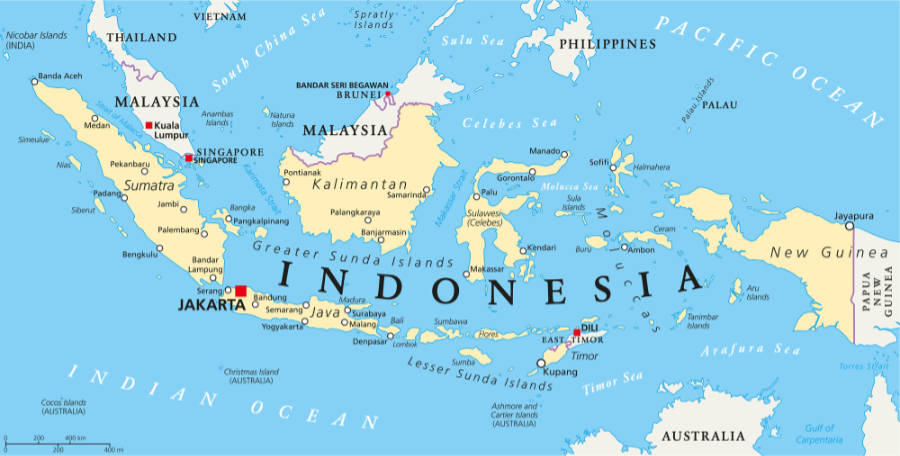Russia is ready to enlarge exports to Indonesia and is interested in joint investment projects, including those in the fuel and energy sector, Russian Foreign Minister Sergei Lavrov has said, following meetings with Indonesian Foreign Minister Sugiono.
Lavrov stated that “We have underlined our readiness to enlarge exports of Russian products to the Indonesian market, including energy, agricultural goods, fertilizers and other commodities. Moscow and Jakarta have a mutual wish to implement joint investment projects, above all in the fuel and energy sector and other areas, including high technologies. Indonesia is planning to develop the national nuclear energy sector, and the Rosatom state corporation is ready to join the construction of a nuclear power plant. We also view the non-energy use of nuclear technologies as a promising area, and Rosatom has accumulated very serious competences.”

Indonesia is the world’s largest Muslim nation, and a multi-trillion-dollar economy in its own right, and is the only G20 member state in Southeast Asia. Services are the economy’s largest sector and account for 43.4% of GDP, followed by industry (39.4%) and agriculture (12.8%).
The country is a major exporter of crude petroleum and natural gas. In addition, Indonesia is one of the world’s main suppliers of nickel, rubber, coffee, cocoa, and palm oil; it also produces a wide range of other commodities, such as sugar, tea, tobacco, copra, and spices (e.g., cloves). The country is also the 5th largest tobacco producer. Manufacturing contributes a staggering 18.67% to the country’s GDP and employs a significant portion of the workforce. The country has a developed mining and metallurgy industry, including the production of steel, aluminium, and other metal products. In the food industry, Indonesia produces a wide range of products, including rice, coffee, tea, rubber, palm oil, fish, and seafood.
Indonesia is ASEAN’s largest economy, and within ASEAN’s framework, enjoys free trade agreements with China, India, Australia, New Zealand, Japan, and South Korea. It has also launched a series of negotiations with other countries on launching free trade and comprehensive cooperation agreements, including an imminent FTA with the Eurasian Economic Union, and is a full BRICS member.
Indonesia’s digital economy is among the fastest growing in Southeast Asia, projected to exceed US$130 billion in value by 2025. Indonesia also has the world’s fifth-highest number of internet users.
Indonesia covers an area of 1,904,569 sq km and has a population of 275.7 million. In 2024 the national GDP (PPP) reached US$4.658 trillion with a GDP growth rate of 5.3%. GDP (PPP) per capita stands at US$19,844.
Russia-Indonesia bilateral trade has been increasing and rose from US$3.3 billion in 2021 to US$4 billion in 2024. Russian tourism to the country is increasing, while several Russian manufacturers, including Kamaz, are operational in Indonesia. Russia’s Softline, a prominent, Moscow based, publicly traded IT developer, has recently opened an office in Indonesia to promote its products and services, in addition to providing vendor solutions. It sees its expert knowledge as a good match for the development potential in Indonesia. Ruble-Rupiah bilateral currency swaps are also a growing part of the BRICS energy alliance moves away from the US dollar in oil trading.
Further Reading

 Русский
Русский














